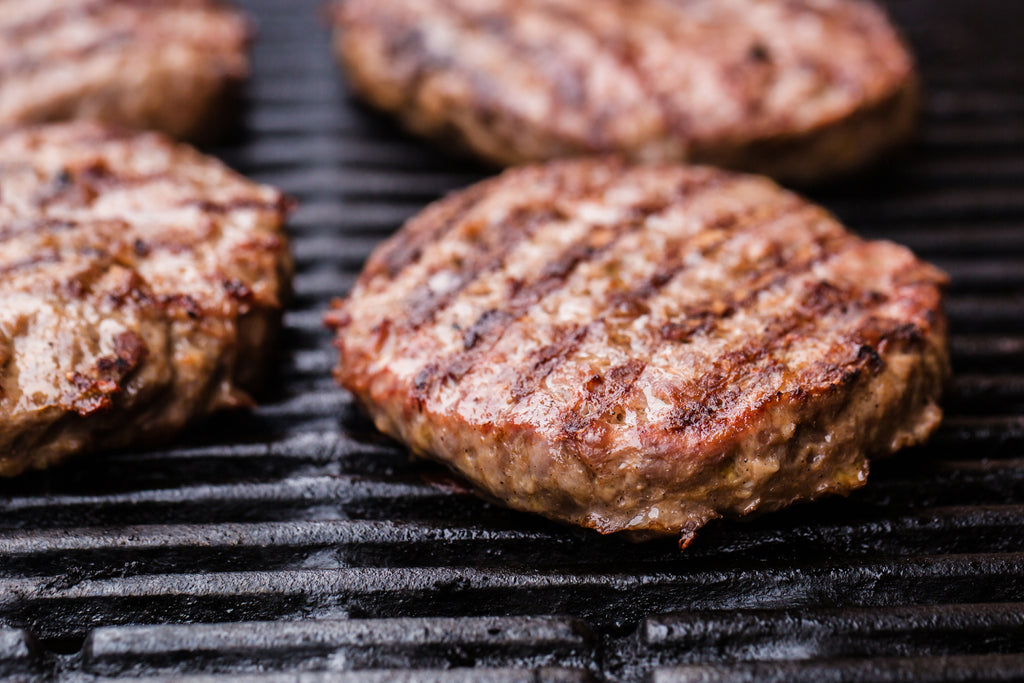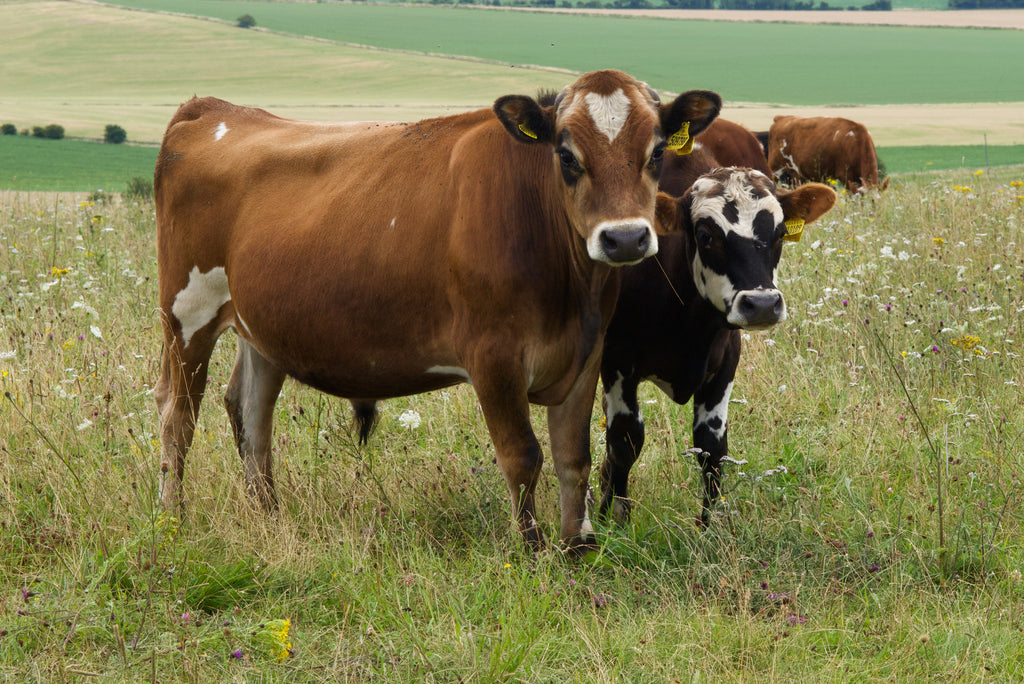
We have a burning question over here at Ember Snacks: when did buying meat get so tricky?
We often find ourselves scratching our heads in the meat aisle of supermarkets, wondering where - literally - on Earth it all came from, and how it really affects our bodies.
We’re given a lot of conflicting information when it comes to meat. The raw food brigade has us thinking red meat is the source of all evil one minute, while the next experts tell us that it is essential for our wellbeing. From clean eating to meat-free Mondays, there’s a whole lot of lingo out there, and it can be hard to know who to listen to - or what choices to make when it comes to filling our baskets. As for fake meat engineered to bleed? It’s all getting pretty confusing.
Here, we drill down into some common myths surrounding meat and health, to make your choices a little simpler and your conscience a little clearer…

This is one that’s been swirling for a long time now. Diet fads tell us to shun red meat in place of raw veg (and questionable, overpriced health snacks), while the media spreads rumours about meat’s negative effects on our health, brains and bodies.
However, last year an international research study concluded something pretty drastic: it turns out there’s not enough scientific evidence to prove this (1). In fact, red meat like lamb and beef is one of the most nutritious foods you can eat. They’re super rich in vitamins and minerals essential for muscle and brain function, and are a vital source of vitamin B12 (something you can’t get from a plant-based diet) (2).
What does vitamin B12 do, you ask? It helps the production of red blood cells, and prevents anaemia. Pretty powerful stuff.
We also recommend you check out the "What Is Biltong" guide.
So you can dismiss all the OTT info you’ve been fed over the years, and instead ask yourself this; how do you feel after you eat red meat? Because without the science to prove that it has any negative effects on our health, this is really all that matters.

We don’t know about you, but this one seems kind of obvious. Just like any other animal (including humans), what a cow consumes over its lifetime has a dramatic impact on its body, and in turn the meat we get from it.
See, the meat we get in supermarkets nowadays is almost unrecognisable from the fresh cuts our grandparents would have been buying from the butcher down the road. Check out our article "5 Questions to Ask When Buying Meat".. As the demand for meat skyrocketed a few decades ago, the quality plummeted. It quickly became about eating cheaper meat, more frequently.
The majority of the meat that fills supermarket fridges now comes from farms (if we can even call them that) who put profit above quality - intensifying production by keeping more animals in cramped conditions, feeding them a lacklustre grain-based diet and pumping them with antibiotics to stop them getting sick. A pretty nasty image, we know.
Here at Ember, we’re all about taking things back to how they used to be. The reality is that meat from pasture-fed animals is just more nutritious, has far more health benefits and tastes so much better.
In fact, studies have shown that pasture-fed beef has less overall fat and higher levels of omega-3 fatty acids - not to mention heaps of essential vitamins E and A. In fact, you’d have to eat more than four times the amount of factory farmed beef to get the amount of omega-3 fatty acids you find in pasture-reared beef (3). Plus, the animals have better lives and the power is put back into the hands of the farmers, not the suits looking to make as much profit as possible.
So it’s win-win, really. Except for the suits.
Don’t get us wrong, we’re not saying it’s wrong to try and reduce our meat consumption and bring more plants to our diets. In an ideal world, we’d all be eating far less - and making sure the meat we are eating is top quality.
There’s a lot of trendy meat alternatives knocking around right now. But the fact is, not all ‘fake meat’ products are healthier than the real deal.
How come? Well, with artificial meat, we miss out on those lovely nutrients we mentioned above, such as iron and B vitamins. On top of this, most alternatives are processed like crazy, with 15 or more ingredients usually crammed in. Call us old fashioned, but our grandparents would have said that if you can’t pronounce what’s in your food, you probably shouldn’t eat it. Dextrose, methyl cellulose, potato dextrin, tetrasodium diphosphate...these are just a few ingredients typically found in meat alternatives. Bit of a tongue twister, to say the least.
So while fake meat has had a glowing health halo put over it, it comes with its own set of issues. We’re looking forward to seeing where things will go with all this - and are up for trying an all-natural, meatless steak at some point. But for as long as it contains ‘diphosphate’? We’ll stick to the real stuff, thanks.
Here’s the thing; it’s really just about balance. We know this is something that gets bandied around a lot, but it’s so true. Good, carefully-sourced meat has essential nutrients crucial to the human body, and can help you stay strong and healthy. Should it account for 80% of your diet? Of course not. But making sure the meat you do eat comes from reliable farms with high standards is one of best things you can do for your health - and your tastebuds.
Next Article: An interview with Philip Lymbery
Sources
1 https://www.acpjournals.org/doi/10.7326/M19-1621
2 https://www.healthline.com/nutrition/is-red-meat-bad-for-you-or-good#section2
3 https://www.ciwf.org.uk/research/food-and-human-health/nutrition/